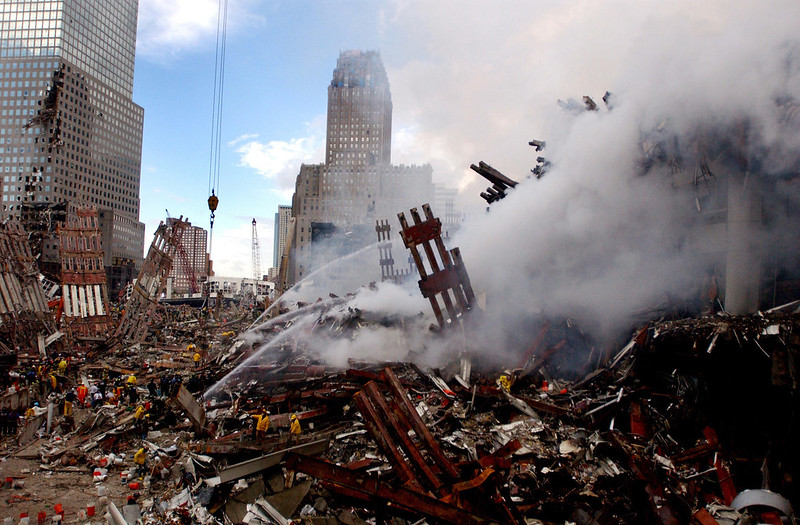Photo By Pingnews.com via Flickr
By Asar John
As the 20th anniversary of the Sept. 11 attacks came and went, many first responders and victims recounted the horrors of the 2001 tragedy. Many of them sought and continue to seek mental health assistance to deal with the gravity of the ordeal that Sept. 11 was. Although mental health services related to Sept. 11 still exist and are being offered 20 years later, we often do not hear about the experiences and trauma from our nations’ “second responders” to Sept. 11– therapists and mental health counselors.
Paula Madrid is a trauma and forensic psychologist based out of Manhattan who entered the professional field of psychotherapy as abruptly as the Sept. 11 attacks themselves. According to a 2011 article by The Guardian in which Madrid is featured in, the then 25-year old Madrid who was not even licensed yet received a call for an interview to
work at a mobile victims unit for children with Sept. 11 trauma. In just one day, she was working at the unit located at the disaster site. While Madrid says the stories from clients have not made a direct impact on her own mental health, she still feels impacted in other ways by the weight of the stories.
“Before there were details of traumatic stories that have remained present in my life as parts of what Sept. 11 was all
about,” said Madrid. “So while those details don’t impact me at the moment, or even 10, 15, 20 years ago, they did create stress and a sense of increased empathy for their welfare and their stories and their well being, as well as a sense of urgency for finding ways to make a difference in their lives.” Madrid hails from Colombia, a country in the midst of a drug war at the time she resided there. Although Madrid says everyday activities such as going to school
and horseback riding involved the background noise of bombs plunging to the ground, she does not consider her childhood in Colombia to be traumatic, or even as preparation for dealing with clients’ Sept. 11 trauma.
“I think perhaps as an older person with more insight, I’m aware that it may have given me more of an empathic understanding or more of a willingness to understand and hear difficult stories,” said Madrid. “But definitely not preparation– I think preparation happens in the context of a good education, lots of reading and lots of hours
actually treating people who suffered.
Madrid mentions that mental health for fellow therapists after the attacks seemed like another issue to tackle as well, amidst dealing with trauma from clients. “Some untrained therapists, in terms of therapists that were not trained to do trauma, were sharing their own traumatic experiences with their patients and that was horrible,” said Madrid, who was working at The Children’s Health Fund at the time. “More significant connections were the fact that many therapists had siblings and relatives that worked in the World Trade Center so they had their own personal impact and having to
then do trauma work that maybe they weren’t prepared to do really took a toll on their mental health.” While the current pandemic brought challenges with mental health, Madrid says the types of challenges caused by COVID vary from those related to Sept. 11.
“September 11 was a oneoff; it was a one-day horrible situation that left many people forever changed,” said Madrid. “What’s happening with the COVID pandemic is that there was no clear beginning. For many people, life has not returned to normal; it’s been an ongoing series of stressors, new traumatic situations that really, I think accumulated and take a toll on peoples’ mental health.”
For Madrid, the field of trauma therapy has evolved in the last 20 years. With COVID, she also spent time talking to hospital workers who sought therapy. “At the time we were trying to handle very acute crises,” said Madrid. “It was all about the desperation of it all—when it came to medical practitioners, such as myself, I was providing day-today support. It was really a crisis but at a different level. It was ;ike the way you do therapy to a soldier who is in an active war.”
Twenty years after Sept. 11, Madrid’s career has shifted to focus on trauma evaluation rather than trauma therapy.
“With trauma evaluations, there’s a question being asked,” said Madrid. “‘What was the impact of this person’s torture
in Africa? ‘How will this person suffer if their relative is deported to another country?’”


